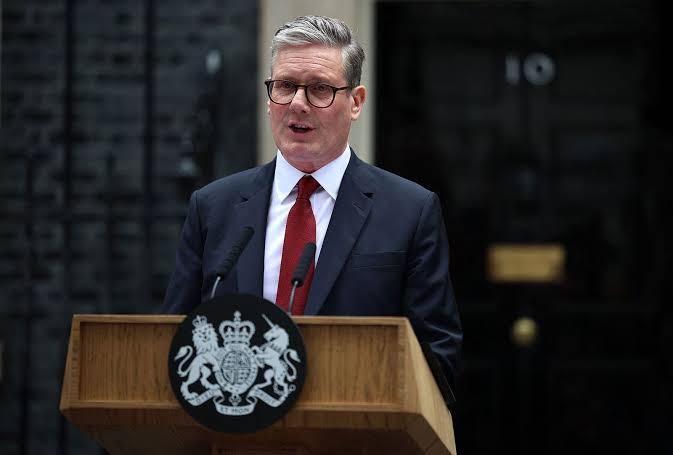
UK Prime Minister Keir Starmer has signaled that the road to fixing Britain’s deep-rooted problems will involve difficult and unpopular decisions, including potential tax hikes on the wealthy and significant spending cuts.
Speaking on Tuesday, August 27, 2024in the rose garden of 10 Downing Street, a location infamous for the controversial COVID parties held under the previous Conservative administration, Starmer warned that the challenges facing Britain could worsen before they improve.
“We have inherited not just an economic black hole but a societal one as well. That is why we must take action and do things differently,” Starmer said, addressing a crowd of apprentices, teachers, nurses, small business owners, and firefighters. “There is a budget coming in October, and it’s going to be painful. We have no other choice … Those with the broader shoulders should bear the heavier burden.”
Starmer, who secured a landslide victory in July, vowed to rebuild British society, pointing to the recent anti-migrant riots as evidence of the deep divisions within the country. He attributed these divisions to the Conservative Party’s focus on populism and short-term gains, rather than addressing the underlying issues.
He also revealed that his government had been blindsided by a £22 billion ($29 billion) deficit left by the previous administration, forcing him to make tough decisions, such as limiting fuel payments to the elderly. Despite the fiscal challenges, Starmer promised to stick to his campaign pledge of not raising certain taxes on working people, but he cautioned that the road to recovery would require sacrifices.
“Frankly, things will get worse before they get better,” Starmer remarked, underscoring the gravity of the situation.
The opposition Conservative Party, however, has accused Starmer’s Labour government of exaggerating the fiscal crisis as a pretext for tax increases. Conservative leadership contender Kemi Badenoch, who also serves as the party’s policy chief for housing and communities, criticized Starmer’s speech as based on a “dishonest analysis.”
“The truth is that Keir Starmer is managing voters’ expectations for a decade of decline,” Badenoch said in a statement.
Starmer also highlighted the inadequacies of the prison system, particularly in light of the recent riots that targeted Muslims and migrants. “Not having enough prison places is about as fundamental a failure as you can get,” he stated, criticizing the previous government’s neglect in addressing these issues.
As the UK grapples with sluggish economic growth, a rising tax burden, and record levels of public sector debt, Starmer emphasized the need for collective effort to overcome these challenges. “Those who made the mess should have to do their bit to clean it up,” he said, referencing new regulatory powers to impose fines on companies responsible for environmental pollution.
Starmer concluded by calling for public support in facing the tough decisions ahead, asserting, “Just as when I responded to the riots, I’ll have to turn to the country and make big asks of you as well, to accept short-term pain for long-term good,” He said.








